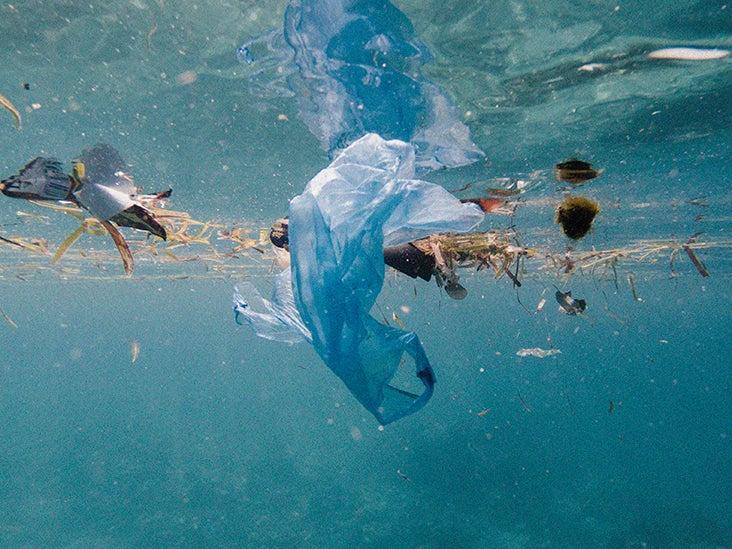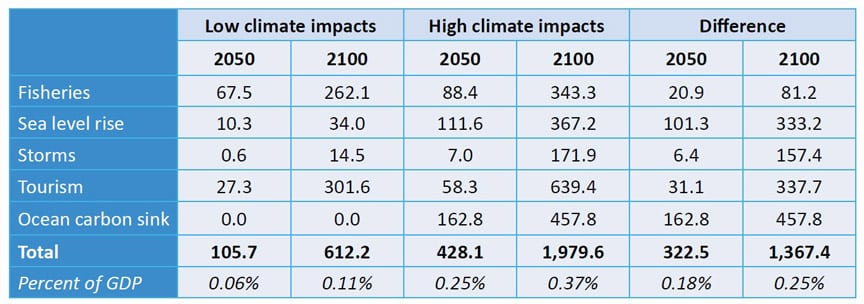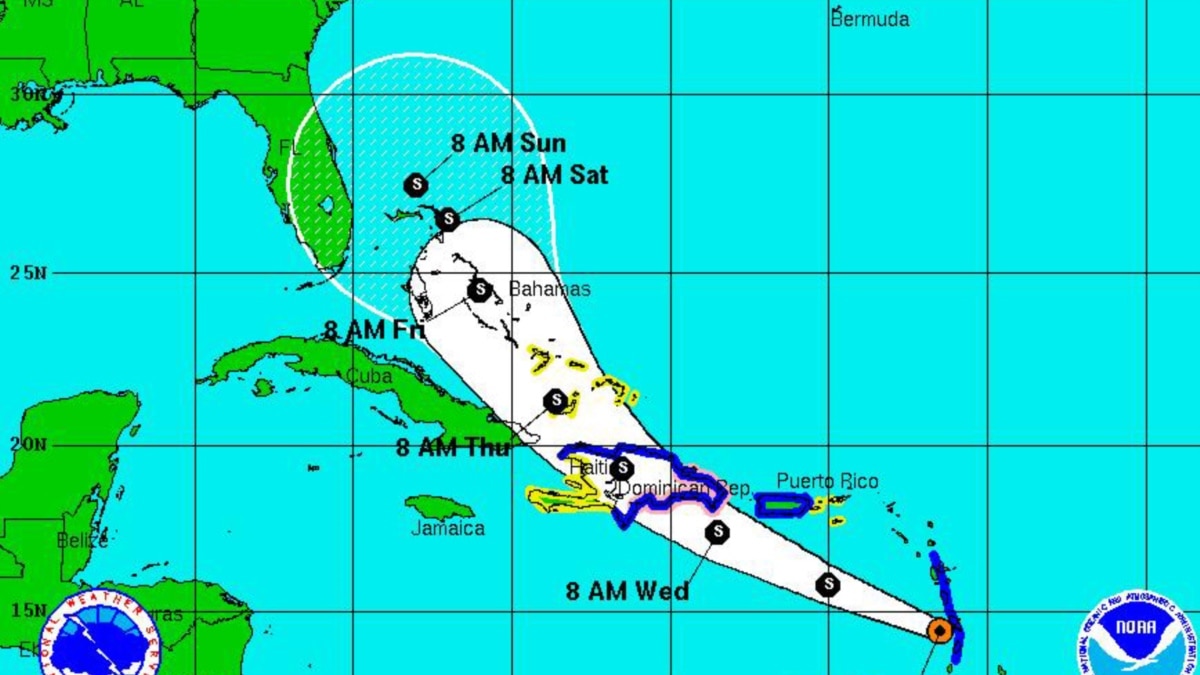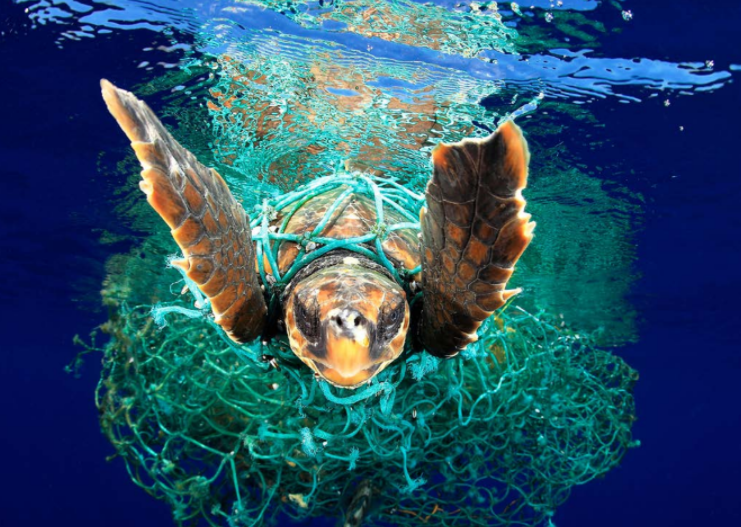Ocean Damage Facts Threats Oceans Solve Biggest Them Reef Wef Surface Earth Cover Barrier Great
Hey there! I hope you're doing well. I came across some fascinating information about our oceans that I think you'll find really interesting. Did you know that protecting our oceans can actually help solve some of the world's greatest challenges? It's true! Let's dive into it.
1. How Protecting Our Oceans Can Help Solve Some of the World's Greatest Challenges
One of the biggest threats to our oceans is pollution. Ocean pollution not only harms marine life but also has a direct impact on human health. It's crucial that we take steps to protect our oceans and reverse the damage we've caused. By doing so, we can address some of the world's greatest challenges, such as climate change, food security, and biodiversity loss.
Climate change is a pressing issue that affects us all. Oceans play a vital role in regulating the Earth's climate by absorbing carbon dioxide. However, due to increased greenhouse gas emissions, our oceans are becoming more acidic, which is harmful to marine life. By protecting our oceans, we can help mitigate climate change and preserve the delicate balance of our planet.
Furthermore, our oceans are a significant source of food for millions of people around the world. Overfishing, pollution, and habitat destruction have severely impacted fish populations. By implementing sustainable fishing practices and protecting marine habitats, we can ensure the long-term availability of seafood and maintain food security for future generations.
Biodiversity loss is another critical challenge we face. Oceans are home to an incredible variety of marine life, including coral reefs, which are often referred to as "the rainforests of the sea" due to their high biodiversity. However, pollution and climate change have led to coral bleaching and destruction of these fragile ecosystems. By protecting our oceans, we can preserve biodiversity and safeguard countless species from extinction.
It's clear that protecting our oceans is not only essential for the health of marine ecosystems but also for addressing global challenges. Now, let's explore some of the biggest threats our oceans face and learn how we can solve them.
2. The Biggest Threats to Our Oceans and How We Can Solve Them
Our oceans face numerous threats, but with the right actions, we can make a positive impact and protect these precious ecosystems. Here are five of the most significant threats and the solutions we can implement:
A. Pollution
Ocean pollution poses a massive threat to marine life and ecosystems. Plastic pollution, chemical runoff from industries, and oil spills are major culprits. To combat pollution, we can:
- Reduce single-use plastics and opt for reusable alternatives
- Properly dispose of waste and recycle whenever possible
- Support initiatives that promote ocean cleanup projects
- Advocate for stronger regulations on industrial waste management
By taking these steps, we can significantly reduce pollution and protect the health of our oceans.
B. Overfishing
Overfishing is depleting fish populations and disrupting the delicate balance of marine ecosystems. To address this issue, we can:
- Support sustainable fishing practices, such as implementing fishing quotas and size limits
- Choose seafood from sustainable sources and look for eco-labels like MSC (Marine Stewardship Council)
- Create marine protected areas, allowing fish populations to replenish and thrive
- Encourage the use of alternative protein sources to reduce fishing pressure
By adopting sustainable fishing practices, we can ensure the long-term health and abundance of fish in our oceans.
C. Habitat Destruction
Habitat destruction, such as the destruction of coral reefs and mangroves, has devastating consequences for marine life. To protect habitats, we can:
- Support organizations working to restore and protect coral reefs and mangroves
- Avoid damaging habitats when engaging in water activities like diving or boating
- Advocate for the creation of marine protected areas and enforce existing protections
- Reduce coastal development and implement sustainable coastal management practices
Preserving and restoring habitats is crucial for the survival of countless marine species and the overall health of our oceans.
D. Climate Change
Climate change has wide-ranging impacts on our oceans, including rising sea temperatures, ocean acidification, and sea-level rise. To combat climate change and its effects, we can:
- Reduce our carbon footprint by using clean energy sources and minimizing energy consumption
- Support renewable energy initiatives and advocate for government policies that promote clean energy
- Plant trees and restore coastal wetlands, which act as carbon sinks
- Reduce water usage and support water conservation efforts
By taking action to address climate change, we can mitigate its effects on our oceans and protect marine ecosystems.
E. Ocean Acidification
Ocean acidification occurs when increasing levels of carbon dioxide in the atmosphere are absorbed by seawater, leading to a decrease in pH levels. This poses a severe threat to marine organisms, especially those with calcium carbonate shells, such as corals and certain plankton species. To combat ocean acidification, we can:
- Reduce carbon emissions by transitioning to cleaner energy sources
- Support research and development of carbon capture technologies
- Advocate for policies that aim to limit carbon emissions
- Protect and restore coastal ecosystems that act as natural barriers against ocean acidification
By addressing ocean acidification, we can protect the delicate balance of marine ecosystems and ensure the survival of numerous species.
3. The Impact of Ocean Pollution on Human Health
Did you know that there is a link between ocean pollution and damage to human health? It's alarming but true. The pollutants present in our oceans can contaminate seafood, leading to health risks for those who consume it. Here's what you need to know:
1. Mercury Contamination: Industrial activities release mercury into the atmosphere, which eventually finds its way into our oceans. Mercury accumulates in fish and seafood and can cause neurological and developmental issues, especially in pregnant women and young children.
2. Plastic Contamination: The presence of microplastics in our oceans is a growing concern. Marine organisms, including fish and shellfish, ingest these microplastics, which can then be consumed by humans. The long-term health effects of ingesting microplastics are still being studied, but it's a cause for concern.
3. Harmful Algal Blooms: Polluted waters can lead to harmful algal blooms (HABs), which produce toxins that contaminate seafood. Consuming contaminated seafood can lead to illnesses such as shellfish poisoning or even neurological damage.
4. Chemical Contamination: Industrial pollutants, pesticides, and herbicides can make their way into our oceans through rivers and runoff. These chemicals can accumulate in seafood and pose health risks when consumed.
It's crucial to be aware of the potential health risks associated with consuming contaminated seafood. To minimize these risks, it's recommended to choose seafood from trusted and sustainable sources, as they undergo rigorous testing for contaminants.
4. Interesting Facts About the Ocean
Now that we have covered some of the challenges our oceans face let's explore some intriguing facts about the ocean:
1. Earth's Largest Ecosystem: The ocean covers about 70% of the Earth's surface, making it the largest ecosystem on the planet. It contains a vast array of plant and animal life, including some of the most amazing creatures on Earth.
2. The Deep Sea: The deep sea remains one of the most unexplored and mysterious places on our planet. We have better maps of the surface of Mars than we do of the deep oceans on Earth.
3. The Great Barrier Reef: Located off the coast of Australia, the Great Barrier Reef is the largest coral reef system in the world. It's so expansive that it can be seen from outer space!
4. Underwater Mountain Ranges: The longest mountain range in the world isn't found on land but underwater! The Mid-Ocean Ridge stretches over 40,390 miles and winds its way through all the major oceans.
5. The Mariana Trench: The Mariana Trench in the western Pacific Ocean is the deepest part of the world's oceans, reaching a staggering depth of about 36,070 feet. That's deeper than Mount Everest is tall!
6. The Blue Whale: The Blue Whale holds the title for being the largest animal to have ever existed on Earth. These majestic creatures can reach lengths of up to 100 feet and weigh over 200 tons – that's as heavy as 33 elephants!
7. Bioluminescence: Some organisms in the ocean are capable of producing light through a process called bioluminescence. This fascinating phenomenon can be witnessed in glowing jellyfish, sparkling plankton, and even deep-sea anglerfish!
8. The Ocean and Oxygen: Approximately 50-80% of the world's oxygen is produced by marine plants, such as phytoplankton. These microscopic organisms play a crucial role in maintaining the oxygen balance of our planet.
Our oceans are full of wonders and provide us with numerous benefits and resources. It's essential that we take responsibility for protecting and preserving them for future generations.
5. The 2004 Indian Ocean Earthquake and Tsunami
In 2004, the world witnessed one of the most devastating natural disasters in history – the Indian Ocean earthquake and tsunami. This catastrophic event had a profound impact on the affected regions and highlighted the importance of preparedness and international support in times of crisis.
The earthquake, which occurred off the coast of Sumatra, Indonesia, on December 26, 2004, had a magnitude of 9.1–9.3, making it one of the strongest earthquakes ever recorded. The resulting tsunami traveled across the Indian Ocean, causing immense destruction and taking the lives of an estimated 230,000 people in 14 countries.
The tsunami waves reached heights of up to 100 feet, striking coastlines with unimaginable force. Entire communities were devastated, with houses, infrastructure, and livelihoods destroyed in a matter of minutes.
In the aftermath of this tragedy, the international community rallied together to provide aid and support to the affected regions. Relief efforts included emergency medical assistance, food and water supplies, and the reconstruction of vital infrastructure. NGOs, governments, and individuals came together to help rebuild shattered communities and provide support to those who had lost everything.
The 2004 Indian Ocean earthquake and tsunami serve as a reminder of the immense power and unpredictability of nature. It also underscores the importance of disaster preparedness, early warning systems, and international cooperation in mitigating the impact of natural disasters.
6. How to Help Protect Our Oceans
Now that we're aware of the threats our oceans face and their importance, let's explore some actions we can take to help protect and preserve these incredible ecosystems:
- Reduce, Reuse, Recycle: By reducing our consumption of single-use plastics, reusing items whenever possible, and recycling properly, we can prevent waste from ending up in our oceans.
- Support Ocean Conservation Organizations: There are numerous organizations dedicated to protecting and restoring our oceans. Consider supporting them through donations or volunteering.
- Choose Sustainable Seafood: Opt for seafood that is sustainably sourced, as this supports responsible fishing practices and helps maintain fish populations.
- Practice Responsible Tourism: When visiting coastal areas or engaging in water activities, be mindful of the impact you have on marine ecosystems. Follow local guidelines, avoid damaging habitats, and never remove or disturb marine life.
- Get Involved Locally: Participate in local beach cleanups, join community initiatives focused on ocean conservation, and educate others about the importance of protecting our oceans.
Collectively, our actions can make a significant difference in preserving the health and beauty of our oceans for generations to come.
Conclusion
Our oceans are facing numerous challenges, from pollution and overfishing to habitat destruction and climate change. However, by understanding the threats and taking action, we can protect and preserve these vital ecosystems. By reducing pollution, supporting sustainable fishing practices, and advocating for stronger environmental regulations, we can make a positive impact. Remember, the health of our oceans is intricately connected to our own well-being. Let's join hands and be stewards of our oceans, ensuring a healthy and thriving future for all.
If you are searching about Ocean damage 'is worse than thought' you've visit to the right page. We have 30 Images about Ocean damage 'is worse than thought' like Is there a link between ocean pollution and damage to human health?, NOAA - Ocean Facts: How does overfishing threaten coral reefs and also 10 Water Damage Facts | Kelmann Restoration. Here it is:
Ocean Damage 'is Worse Than Thought'
 archives.sundayobserver.lk
archives.sundayobserver.lk 2004 Indian Ocean Earthquake And Tsunami: Facts, FAQs, And How To Help
 www.worldvision.org
www.worldvision.org tsunami aceh earthquake sumatra earthquakes banda worldvision disasters dahsyat gempa caused magnitude disaster theories terjadi pernah steamdaily deadliest
Report: The State Of The Ocean
 www.plantbaseddata.org
www.plantbaseddata.org overfishing seaspiracy trawling trawler problems destruction secretos documental oscuros pesquera revela seabed greenpeace herring trawlers facing seas biggest fix aotearoa
The Ocean Has Issues: 7 Biggest Problems Facing Our Seas, And How To
 www.pinterest.com
www.pinterest.com threats collapsing oceans infographics planetsave worthminer scubadiverlife reuse infograph maritimecyprus facing scuba lifehack ecosystem
Is There A Link Between Ocean Pollution And Damage To Human Health?
 www.medicalnewstoday.com
www.medicalnewstoday.com damage pollution oceans
Moreland Advisors, Inc. 50 Facts About The Ocean (infographic
ocean facts infographic
Water Damage Repair Tips & Facts | Contractor Connection
 www.contractorconnection.com
www.contractorconnection.com damage water infographic facts tips repair categories
Ocean Damage From Climate Change Will Cost $2 Trillion A Year | Climate
 climateandcapitalism.com
climateandcapitalism.com Reading Writing 626 Fall 2012: OCEAN ISSUES
 rw626f12.blogspot.com
rw626f12.blogspot.com issues ocean writing reading fall hardy
A Wake Up Call: Our Waters In Danger - Dr Prem's Life Improving Guide
oceans damage danger fish wake waters call could think over bbc ocean
Toot's Book Reviews: Cover Reveal: Ocean (Damage Control #5) By Jo Raven
 tootsbookreviews.blogspot.com
tootsbookreviews.blogspot.com 25 Years Of Debris Collected From The Oceans – Infographic… | Chris The
 thestoryreadingapeblog.com
thestoryreadingapeblog.com oceans debris infographics litter cleanup plastics garbage visual zero junk hauling reef rubbish rifiuti worthminer poubelle développement climatique réchauffement environnement
Damage To Oceans Could Be Irreparable And Deadly – EURACTIV.com
 www.euractiv.com
www.euractiv.com oil spill deepwater spills noaa response restoration vessels rig oceans irreparable overflight raises alarms euractiv preparedness helm citizen streaks conjunction
Ocean Storms Can Cause Great Damage
 learningenglish.voanews.com
learningenglish.voanews.com Scientists Map Ocean Damage : NPR
 www.npr.org
www.npr.org Oceans Losing Oxygen, Can Damage Marine Life: Study | Mint
 www.livemint.com
www.livemint.com oceans indian oxygen study risk area losing damage marine sea india ocean reduced piracy boost crore mission deep plans livemint
What Type Of Damage Has Mankind Done To Our Oceans? By Judith Weis
 www.youtube.com
www.youtube.com damage oceans
Toot's Book Reviews: Cover Reveal: Ocean (Damage Control #5) By Jo Raven
 tootsbookreviews.blogspot.com
tootsbookreviews.blogspot.com raven teasers excerpt escaping reality
Ocean Life Faces Mass Extinction, Broad Study Says | The Ocean Update
 whalesandmarinefauna.wordpress.com
whalesandmarinefauna.wordpress.com ocean terrestrial timeline marine scale log update
The Ocean Has Issues: 7 Biggest Problems Facing Our Seas, And How To
:max_bytes(150000):strip_icc()/majorproblemsoceansface-5eede871db1a4dac8ee20cbc1c1109a8.png) www.treehugger.com
www.treehugger.com facing treehugger oceans allison hilary
Read Ocean (Damage Control Book 5) By Jo Raven Online Free Full Book.
 100vampirenovels.net
100vampirenovels.net ocean book damage control jo raven
How Protecting Our Oceans Can Help Solve Some Of The World’s Greatest
 www.pinterest.com
www.pinterest.com oceans greatest
10 Water Damage Facts | Kelmann Restoration
Map Reveals Extensive Damage To World's Oceans : NPR
 www.npr.org
www.npr.org map human oceans ocean impact global activities effects marine ucsb climate total scientists reveals biome 2008 change halpern damage impacts
8 Images And Quotes That Will Reveal How Much Ocean Damage We Are
 www.uw360.asia
www.uw360.asia Pin On Oceans
 www.pinterest.com
www.pinterest.com coral reef reefs bleaching information poster facts infographics amazing kids infographic chemistry barrier plastic animal fish oceans animals why ocean
12 Help The Ocean With Us! Ideas | Ocean, Pollution, Oil Spill
 www.pinterest.com
www.pinterest.com ocean after before pollution hurricane sandy water help acidification plastic great oceans beach funsubstance garbage pacific impact patch marine its
Water Damage Facts And Ways To Prevent It - Infographics
 free-infographics.blogspot.com
free-infographics.blogspot.com damage water prevent facts ways
NOAA - Ocean Facts: How Does Overfishing Threaten Coral Reefs
 www.pinterest.co.kr
www.pinterest.co.kr overfishing reefs noaa threaten oceanservice
Here Are 5 Of The Biggest Threats To Our Oceans, And How We Can Solve
 www.weforum.org
www.weforum.org threats ocean oceans solve biggest them reef wef surface earth cover barrier great
A wake up call: our waters in danger. Ocean damage 'is worse than thought'. Map human oceans ocean impact global activities effects marine ucsb climate total scientists reveals biome 2008 change halpern damage impacts
Post a Comment for "Ocean Damage Facts Threats Oceans Solve Biggest Them Reef Wef Surface Earth Cover Barrier Great"